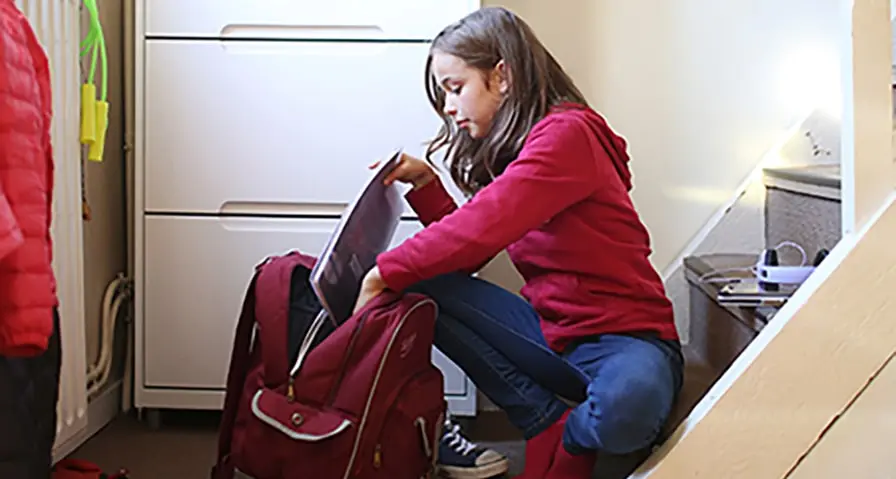Originally published Aug. 8, 2022 by the UAB News.
By Hannah Echols
Heading back to school brings excitement for many but can also cause stress and anxiety for children and their families. With an increase in youth mental health diagnoses since the start of the COVID-19 pandemic, it is important for families to feel empowered to support their children’s mental health as they transition into a new school year.
Implementing a simple and consistent routine provides a foundation that promotes positive mental health, according to Channing Brown, M.D., assistant professor in the Department of Pediatrics Division of Academic General Pediatrics and Division of General Internal Medicine at University of Alabama at Birmingham Marnix E. Heersink School of Medicine.

“Children thrive in structured environments and benefit from routines,” Brown said. “Creating a predictable schedule for your kids helps them feel safe and teaches them how to regulate their bodies.”
Establish a sleep schedule
Children and adolescents’ schedules are often disrupted during the summer months. Brown suggests introducing a consistent sleep schedule a few weeks prior to the school year to help with a smooth transition.
Shifting bedtimes earlier can ensure kids receive an adequate amount of sleep and wake up energized for the school day. According to the American Academy of Pediatrics, children ages 6 to 12 should receive nine to 12 hours of sleep and teenagers ages 13-18 should receive eight to 10 hours of sleep. Slowly shifting bedtime routines up 15-30 minutes prior to the school year makes it easier for children to get accustomed to the new time.
Brown says an example of a quality bedtime routine includes a bath or shower, brushing teeth, putting on pajamas, and reading as a family or individually 15-20 minutes before lights-out. She also advises against screen time and drinking fluids in the hour before bed to help calm the brain and reduce nighttime accidents.
Move it
Transitioning from summer activities to the classroom often means a decline in physical activity during the day. To bridge this gap, after-school routines should incorporate movement and limit screen time.
“Movement and exercise not only improve physical health but have been shown to improve academic performance, sleep quality and behavior,” Brown said. “Studies have also shown they can help with managing depression and ADHD in children.”
Parents should encourage children to get at least an hour of movement each day, through activities such as dance, sports, walks and bike rides. Brown also encourages parents to provide a creative space for kids to play to help stimulate both the body and mind.
Establish family time
Back-to-school also means a return to extracurricular activities and busy schedules. Blocking off family time each day, whether it is eating at least one meal together or participating in a family activity, allows parents to hear from children and provides a time for connection.
“Eating one meal a day as a family is associated with a decreased risk of certain mental health conditions such as depression, poor academic performance and substance abuse and is specifically protective against eating disorders in children and teenagers,” Brown said.
When to seek help
Even with a well-established routine, children may need additional mental health support. According to Brown, parents may need to speak with a pediatrician or mental health specialist if they witness the following in their children:
- Sleep disturbances or increased need for sleep
- Multiple new physical symptoms: common headache, stomach pain, nausea, stool changes like constipation or diarrhea
- Irritability or increased crying
- Difficulty focusing
- School performance or grades worsening
- Decreased or increased appetite
- Behavioral outbursts such as kicking, hitting or throwing
- Fidgety behavior
- Talking about suicide or death
“Parents should be open and honest with their children’s teachers if there are any mental health concerns because teachers can offer additional support,” Brown said. “Above all, knowing that there is a loving adult who is there to listen and help can have a positive impact on a child’s mental health.”
Make the IHT ZONE heart rate monitor part of your School's Student Wellness Program




